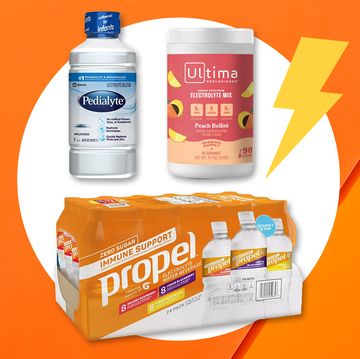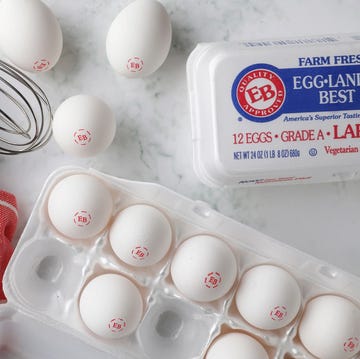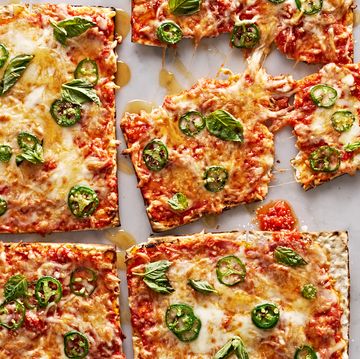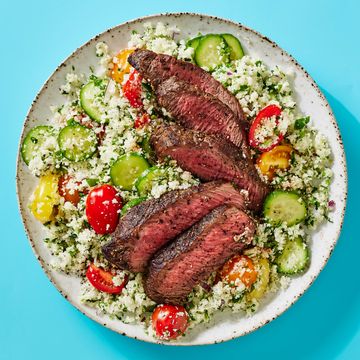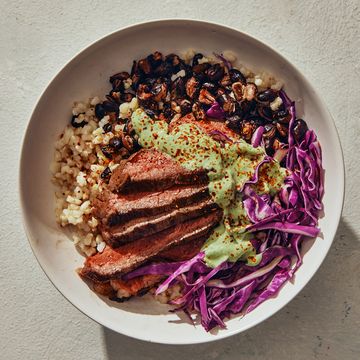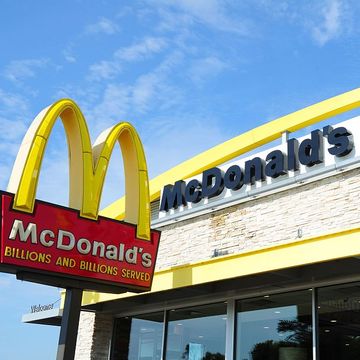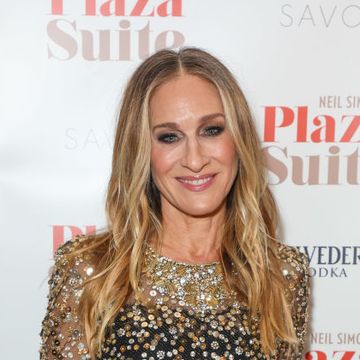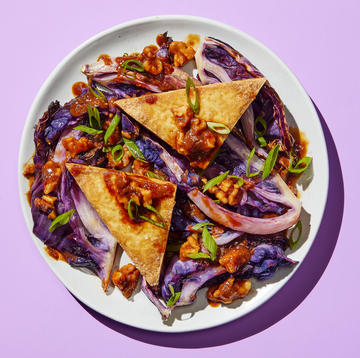Everyone loves dairy—after all, cheese cubes and mint chocolate chip ice cream practically make the world go ‘round. (Just us?) But there’s no limit on the amount of trash talk you can find online about dairy and the damage it can cause. (Even KhloéKardashian swears that ditching dairy is what finally helped her shed pounds.)
So what exactly are the downsides of dairy? Let’s start with the fact that research shows that about 65 percent of adults have trouble digesting lactose, the main ingredient in dairy. “Oftentimes, the symptoms of lactose intolerance are so subtle that the average individual wouldn’t notice the difference in how good or bad they feel until about 12 hours after consumption,” says Cassandra Forsythe, Ph.D., R.D.
But unless you're experiencing serious tummy troubles, is it really worth it to ditch the moo juice? The answer: maybe. “There are a lot of valid reasons to explore a dairy-free lifestyle,” says Forsythe. “For most people, cutting down or eliminating dairy from their diet can lead to incredible health benefits that help them in the present day as well as the future, such as nasal congestion, gassiness and water retention.” (Insert sad-face emoji.)
RELATED: 7 Things That Happen to Your Health When You Stop Eating Dairy
Here's what you need to know to make your own informed decision about how much (and what kind of) dairy you choose to down. (Change the way you eat for good with Women's Health's The Body Clock Diet.)
Organic milk is better for you.
“If you’re going to incorporate milk into your diet, it’s best to buy organic,” says Forsythe. “Organic anything can have benefits of less preservatives and additives that may be harmful to our bodies.” And yes, it's worth it to get choosy in the dairy aisle. Many dairy cows on large farms are treated with steroids and estrogen, and studies show that exposure to these hormones is linked to an increased risk for cancer. “Non-organic brands use the growth hormone BGH, which has been genetically engineered to boost milk products,” says Isabel Smith, R.D., a New York City-based celebrity dietitian and fitness expert. “The cows treated with BGH get other infections, too, so there’s an increased risk for you in non-organic milk.”
RELATED: Your Guide to Milk: The Pros and Cons of 8 Different Types
You don’t need milk to ensure you get enough calcium.
“You can get calcium from many other food sources and supplements,” says Forsythe. “In fact, many countries and cultures do not drink or use any dairy or milk and meet their needs and do just fine.” Just one cup of calcium-fortified orange juice contains as much calcium as one cup of milk—and a 1/2 cup-serving of tofu contains more. “Most breads and cereals are fortified with calcium, and vegetables and beans like mustard and turnip greens, bok choy, kale, parsley, watercress, broccoli, navy beans, pinto beans, garbanzo beans, and more can give you your fill of the bone-boosting stuff,” says Smith.
Full-fat dairy is associated with a lower risk of obesity and type 2 diabetes.
According to research from Lund University in Sweden, consumption of high-fat yogurt and cheese is linked to a reduction in the risk of type 2 diabetes by as much as a fifth. Researchers studied the eating habits of 27,000 people aged 45 to 74 for over 20 years and found that individuals who ate the most high-fat dairy products had a 23 percent lower risk of developing the disease than those who ate it the least. “I do think more research needs to be done for a full conclusion, but for most people, full fat in moderation is more satisfying and is better for blood sugar control than fat-free,” says Smith.
RELATED: In Defense of Whole Milk
Eating lots of dairy has been linked to an increased risk of cancer.
Yeah, this one is tough to swallow. “Ovarian cancer has been linked to a diet high in dairy,” says Smith. “In fact, a Harvard study that looked at over 100,000 women aged 26 to 46 found that those who consumed a diet high in meat and dairy also had the highest risk of breast cancer.” In other words, moderation is key.
Bottom line: There is a healthy way to consume dairy—just keep it to smaller amounts. “Aim for dairy to make up no more than 10 or 20 percent of your total diet,” says Smith. “Reach for organic and healthier varieties like yogurt.”
Jenn Sinrich is an experienced writer, digital and social editor, and content strategist covering health, fitness, beauty, and relationships. After a decade-long career in New York City working in the magazine industry and at a myriad of digital publications, Jenn returned to her hometown just north of Boston to pursue freelancing full-time.


